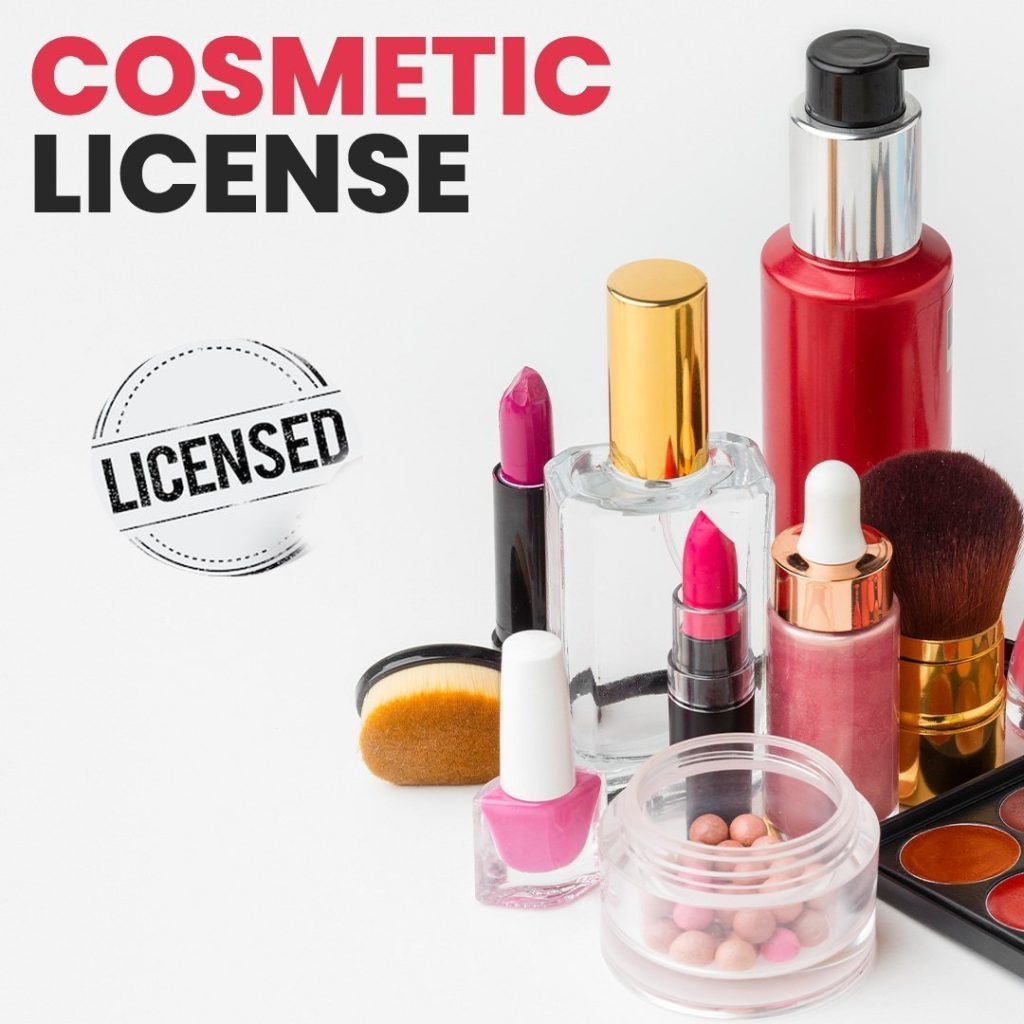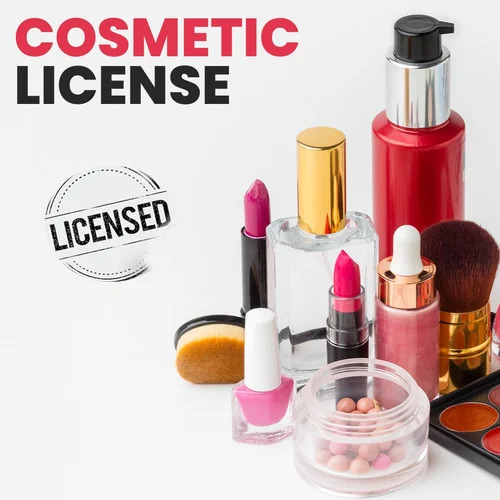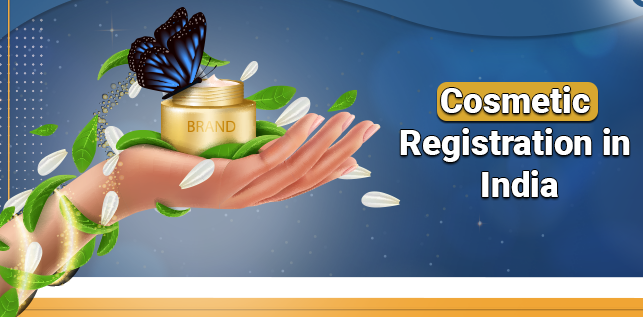
Introduction to Cosmetic License Registration in India
In the bustling and competitive Indian market, the beauty and cosmetic industry holds immense potential for growth and success. However, with this potential comes the need for compliance with regulatory standards and requirements. One such crucial requirement is cosmetic license registration. This article aims to shed light on the importance of cosmetic license registration in India and how it can pave the way for success in this dynamic market.
Importance of cosmetic license registration for success in the Indian market
Obtaining a cosmetic license registration is not just a legal obligation, but a vital step towards establishing trust and credibility in the Indian market. The Indian consumer is becoming increasingly conscious about the products they use, and a valid cosmetic license acts as a seal of assurance. It demonstrates that the product has undergone rigorous testing and complies with the safety and quality standards set by the regulatory authorities.
Moreover, cosmetic license registration opens doors to a wider customer base. Many retailers and e-commerce platforms require cosmetic products to have a valid license before they can be sold. By obtaining the necessary registration, businesses gain access to these distribution channels, expanding their reach and increasing their chances of success in the Indian market.
Understanding the regulatory framework for cosmetic licenses in India
To navigate the process of cosmetic license registration, it is essential to have a clear understanding of the regulatory framework in India. The primary authority responsible for regulating cosmetics is the Central Drugs Standard Control Organization (CDSCO). The CDSCO ensures that cosmetic products comply with the provisions of the Drugs and Cosmetics Act, 1940, and the Rules, 1945.
Under the regulatory framework, all cosmetic products must be registered with the CDSCO before they can be manufactured, imported, or sold in India. The registration process involves submitting detailed information about the product, including its composition, manufacturing process, safety data, and labeling. Once the application is reviewed and approved by the CDSCO, a cosmetic license is issued, allowing businesses to legally operate in the Indian market.
How to apply for a cosmetic license in India
The process of applying for a cosmetic license in India can seem daunting, but with the right guidance, it can be streamlined. The first step is to prepare a comprehensive dossier containing all the necessary information about the cosmetic product. This includes details about the ingredients used, their safety data, manufacturing process, and labeling.
Once the dossier is ready, it must be submitted to the CDSCO with the prescribed application fee. The CDSCO then reviews the application and conducts a thorough evaluation of the product’s safety, efficacy, and compliance with the regulatory standards. It is important to note that the application process may involve inspections and audits of the manufacturing facilities to ensure adherence to good manufacturing practices.
The process and requirements for obtaining a cosmetic manufacturing license
For businesses involved in the manufacturing of cosmetic products, obtaining a cosmetic manufacturing license is a crucial step toward compliance and success. The process for obtaining a manufacturing license is similar to the general cosmetic license registration process, with a few additional requirements.
Apart from the detailed information about the product, manufacturers need to provide documentation related to their manufacturing facilities, including layout plans, equipment details, and quality control procedures. The CDSCO evaluates the manufacturing facilities to ensure that they meet the necessary standards for safe and hygienic production. Once the manufacturing license is granted, businesses can commence production and distribution of their cosmetic products in the Indian market.
Exploring the online options for cosmetic license registration
In the digital age, the Indian government has taken steps to make the process of cosmetic license registration more accessible and convenient. Online platforms have been introduced to simplify the application process, reducing paperwork and processing time.
The CDSCO offers an online portal where businesses can submit their applications and track the progress of their registration. This online option has made the process more efficient, saving business time and resources. It is important to note that while online registration is available, businesses still need to ensure that they comply with all the requirements and provide accurate information.
Cost and procedure of cosmetic registration in India
The cost of cosmetic registration in India varies depending on the type of license and the nature of the product. The application fee for cosmetic license registration is determined by the CDSCO and needs to be paid along with the submission of the application. Additionally, businesses need to allocate resources for the preparation of the comprehensive dossier, including safety and efficacy testing of the product.
The procedure for cosmetic registration in India requires meticulous attention to detail and compliance with regulatory standards. Businesses should seek the guidance of regulatory experts who can assist in navigating the process and ensuring that all requirements are met. While the cost and procedure may seem daunting, the benefits of obtaining a cosmetic license in terms of market access and consumer trust outweigh the initial investment.
The benefits of obtaining cosmetic certification in India
Obtaining cosmetic certification in India goes beyond mere compliance with regulatory standards. It is a strategic move that can differentiate a brand from its competitors and instill confidence in the minds of consumers. A valid cosmetic license acts as a testament to the quality, safety, and efficacy of the product, assuring consumers that they are making a wise choice.
Certification also opens doors to collaborations and partnerships with other businesses in the industry. Many retailers and distributors prefer to work with certified brands as it reduces their liability and ensures that the products they offer align with their quality standards. By obtaining cosmetic certification, businesses can tap into these opportunities and establish strong relationships within the Indian market.
The role of cosmetic registration in ensuring product safety and quality
Product safety and quality are paramount in the cosmetic industry. By obtaining a cosmetic license, businesses commit to adhering to the regulatory standards set by the CDSCO. This includes rigorous testing of the ingredients used, compliance with good manufacturing practices, and accurate labeling of the products.
Cosmetic license registration acts as a safeguard for consumers, ensuring that the products they use are free from harmful substances and meet the necessary quality standards. It also provides a mechanism for monitoring and surveillance by the regulatory authorities, enabling them to take necessary action in case of non-compliance or safety concerns.
Conclusion: Embracing cosmetic license registration for success in the Indian market
In a market as dynamic and competitive as India, cosmetic license registration is not just a legal requirement, but a strategic move towards success. By obtaining a valid license, businesses gain access to a wider customer base, establish trust and credibility, and demonstrate their commitment to product safety and quality.
While cosmetic license registration may seem complex, businesses can navigate it successfully by understanding the regulatory framework, seeking expert guidance, and embracing digital options. The initial investment of time, effort, and resources is outweighed by the long-term benefits of market access, consumer trust, and industry collaborations.
In conclusion, cosmetic license registration is an essential step for unlocking the potential of the Indian market. By embracing this requirement, businesses can position themselves for success and contribute to the growth and development of the beauty and cosmetic industry in India.




